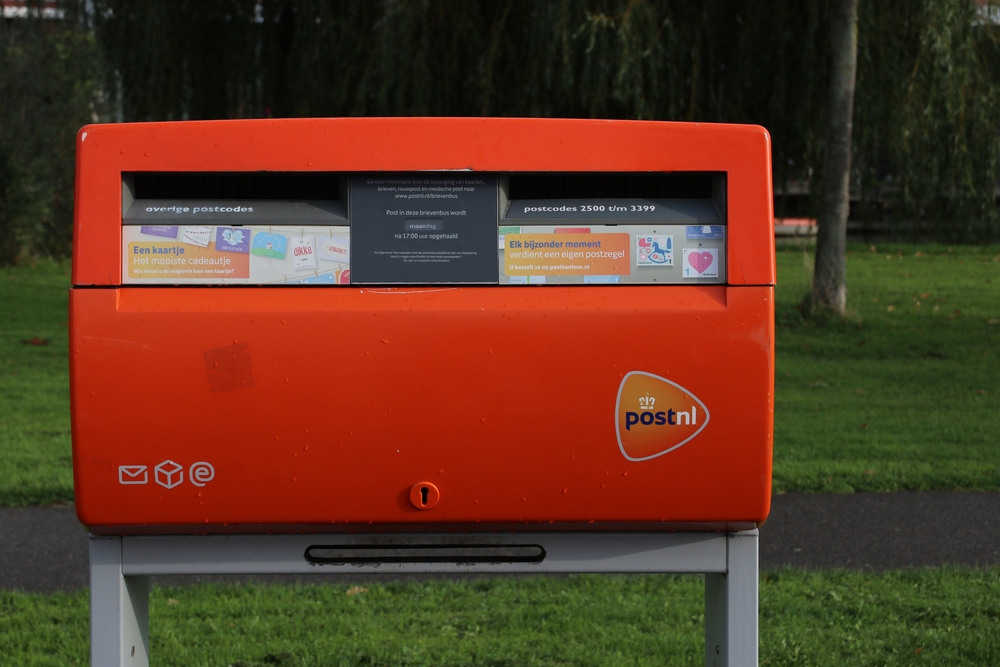I have lived in a variety of places in my life. When I decided to move to Drenthe, I kept hearing comments from my friends and Dutch expats about all the unspoken rules in the Netherlands.
There are rules for the usual things like traffic and taxes. There are also rules for riding your bike, which, of course, make total sense given the absurd amount of them in this country.
What no one seemed able to explain was that there are a number of unspoken rules that everyone seems to understand and follow.
These rules are more directly related to the social aspect of living here in the Netherlands, and they seem to be engrained into the people, suggesting that they have been taught from a young age.
Now, most people who live in a law-abiding society tend not to like the rules they have to follow, but breaking them doesn’t necessarily cause anyone much anguish.
Nonetheless, these Dutch social rules are widely accepted and implemented, and the Dutchies really don’t appreciate it when you don’t follow them. 💁🏼♀️
So, here is my list of five unspoken rules in the Netherlands (in the event that you move to this wonderful country, you can blend in seamlessly and without committing any social faux pas!)
1. No one interrupts dinner!
Simple enough — the Dutch do not, under any circumstances, stop by, call, email, throw rocks, or even send pigeons to anyone’s home during the time of 6-7 PM.
READ MORE | Dinner in the Netherlands: traditions, dishes, and restaurants
You see, the Dutch take family dinner time very seriously, and almost always spend the time together around the table. You won’t find any TV trays here!

2. When answering your phone, you must always announce who you are to the caller.
For example, I call my sister. She picks up her cell and says “Hello, this is Chris”. In Dutch, you would say “Hoi, met Chris”. Now I know it’s her: I mean, I just dialled her number, right?
But for some unknown reason, the Dutch have kept this formal way of phone etiquette. It also works the other way: when you are calling someone, you will announce who you are when they pick up.

As much as I was against it initially, as I thought it was just plain silly, I find myself doing it more often than not.
3. Always wave goodbye to your guests… furiously
This one is simple enough.
Once your guests leave, you should go to the door, or depending on the weather, you can go outside. You must then wave continually until they are out of your line of sight.

To go back inside before they are gone is…rude!
So as a rule of thumb: wave and wait, until the car or bike is out of sight! 👋🏼😴
4. Keep that eye contact: no shades
The Dutch tend to come across as blunt, but they are not trying to be rude, they just don’t beat around the bush.
They get straight to the point. In that context, they also like to make eye contact. They look directly at you and engage when they are in conversation. 🗣

This leads to a sort of odd sub-rule: removing your sunglasses when you speak with someone.
They don’t like it when your eyes are covered, as it comes across as rude. So next time you are chatting with someone, raise your shades and make intense eye contact! 👀
5. When in doubt, send a card
It seems like the Dutch are single-handedly keeping the card industry afloat.
They send cards for every occasion, although they are normally not very personal. Usually, a name signed on the inside is all you get. 🤔
We guess they let the cards speak for themselves.

So whether your new friend just had a baby, is recovering from an illness, or has just moved into their significant other’s house, always send a card. It’s just another one of those unspoken rules!
There are many more of these social rules, and as someone who has moved around a bit, we find that knowing these rules will help avoid offending your new friends or colleagues. A fun read is this Wikipedia article, which details many other social rules that you should be aware of!
Are there any unspoken rules we missed out on here? Let us know in the comments below!





Well the one where you anounce who you are on the phone goes back to the time before mobile phones, when you dial a landline you don’t know who wil pick up the phone, might be the person you’re trying to reach, might be a family member, or a visitor. I think is wierd that you don’t announce who you are, how else am I gonna know who you are…
1) Who wants to go “back to the time before mobile phones”?
2) I come from a country where, as you are the one that called, you are supposed to tell who you are first and who you want. Then I’ll decide if it is relevant that you know who I am before passing you to the one you wanted. It is very weird to announce your name when called I think. Sounds like “Hello I am Got Nothingtohide Bart. C’mon guys. Let us help you 🙂
I read that it was in the instructions when the first phones came to the market (landlines) to announce your name when you pick up, kind of a confirmation of who picked up so no questions need be asked. It saved time and that meant money.
I still don’t know who’s calling when there’s a call from my aunt and uncle’s house. Last week I went “Hi aunt!” but it was my cousin calling from her parents’ house. Oops.
Also, my mother unfortunately really ignores the whole “no interrupting dinner” rule which I really need because stressful/interrupted dinner really ruins things for me. Whereas I can eat my lunch on the go in the car and I don’t care. But there’s been occasions where we were having dinner, someone came at the door and she LET THIS PERSON IN and I had to wait an hour to be able to finish my dinner peacefully.
It’s apparently not sacred to every Dutch person.
volgens mij is deze gedachte/opinie niet echt 2018 vooral nummer 1.
Ik ben al weg sinds 1976 maar kan me dat niet echt voorstellen.
Nou, misschien niet zo strikt als hier aangegeven, maar storen tijdens het avondeten wordt nog steeds niet op prijs gesteld, hoor ?
Funny, I live in the Swiss and I thought these were Swiss rules :-). Aiaiai, Maybe the Swiss aren’t that bad 😉
Another unspoken rule at point 5; “when in doubt, send a card”. IT is mostly the wonen who send the cards. When I merried my husband in the late seventees, I didn’t know this and so I didn’t sent a card when my brother in-law had his birthday. My sister in law attendet me that I had to send a gratulations card evry time a member of my husbands familie had a birthday.
Moving into a new house, you have to go introduce yourself to your neighbours . They will not take the initiative and find you rude if you don’t. I think this is mostly for older generations and the younger ones are more flexible.
Again some of these rules do not apply to all Dutch. It depends on individuals or family traditions. Friends or family can always come around dinner time to visit and I will certainly have them eat dinner with me. All Dutch are not direct, yes when there is no direct sunshine in your eyes I do not wear sunglasses outside when sitting on a terrace with company,when there is most people will wear them andnotbe offended. The mentioning of our names on the phone comes from a time you could in no way see who is calling you. And all Dutch are not that direct. It depends on areas. There is NO overall Dutch culture, there are overall general traditions and rules, but they can vary per area or family or individual. As for the cards, most people write something personal on the card. These articles on Dutch culture seem to be written by some personal experiences which are not 100% general. I was born in Drenthe and I experiences something totally different. Stop stereotyping.
Hello, Im 28 and dutch, this article made me smile!! its all so true for me! one day i should count how many hours of my life i will have/will spend waving 😀 also i still ask for permission to leave the dining table when im with my family^^ (even friends!)
When you congratulate someone,s Birthday, Anniversary you shake hands with the rest of the family also.
As a Dutchie I kinda feel vicarious shame for Elisanne in the MP4 video. It even has its own English wiki page. That is not a solely Dutch concept. As for those 5 unspoken rules…
Sure; when calling around dinner time it is proper to ask whether you aren’t interrupting while calling.
However, Rule #2 strikes me as a remnant of the day and age before caller ID, and coincidentally is only still a thing when you aren’t calling one another on mobile phones.
#3 is only applicable when you don’t live in the city and people can park in front front of your door.
#4 I can’t say I have noticed any shade troubles when talking with someone who was wearing shades, or that people were offended off if I didn’t put them off.
#5 Only the people that are really attentive bother to send a card, and that is often because they can’t come by. And even then I still know more people who will send a WhatsApp message.
The origin of telling your name when picking up the phone has its roots in the time that an operator made the connection. Our tel.no was 59 and say I wanted to call my sister on 65. Indeed that were the numbers back than. The procedure was as follows: You picked up the receiver and turned the crank a few times, The operator came on line and you told her (always a HER) that you wanted to talk with you sister on No. 65. The operator told you to hold on while she connected with 65. Sometimes she kept the line open sometimes not.When 65 picked up you could here directly who picked up. If it was one of her kids, you could say that it was OK . Than the operator secured the connection and got out of the way. Supposedly!!. If you forgot to tell the operator to tell who you were when you picked up, she would tell you that next time you would better follow protocol in an not so suptile voice. And you never wanted to get the operator uneasy. A niece of mine was an operator and sometimes she did this: My phone rang and I picked up got my sister. After just chatting I thanked her for calling. But she said that I called her. My niece had made the connection.
Stay Safe.
# 6
when yo enter a waiting room (e.g. at the doctor’s) you say good morning/afternoon
#7
when you get on an elevator, you say a greeting
#8
when walking by in a restaurant you say ‘eet smakelijk’ (bon appetit) to people you walk by
Always shake hands with people when you meet up with them, whether you know them or not.
Nice read. And as a whole correct. There is one caveat though. Yes we may think that, for instance keeping your shades on is rude, we don’t take it as an offense. It’s oke if you do, just not…. nice?
Same goes for other rudeness. The Dutch are not easily offended. They must really love you first before being disappointed by your rudeness. If you get what I’m saying.
That waving is for honored guests and loved ones. Really, I enjoyed your visit? I will get up and wave until my hands hurt. But if you are just visiting every day for coffee and a smoke? Nah. Don’t let the door hit you on the way out.
Same with the cards. It’s just a reminder I think of you without forcing my presence on you or stealing your time. And of course it’s convenient.
When you’re visiting, and tea is prepared and set before you, then the cookies, take only ONE cookie. You must wait until a second one is offered, after which, the cookies will be put away.